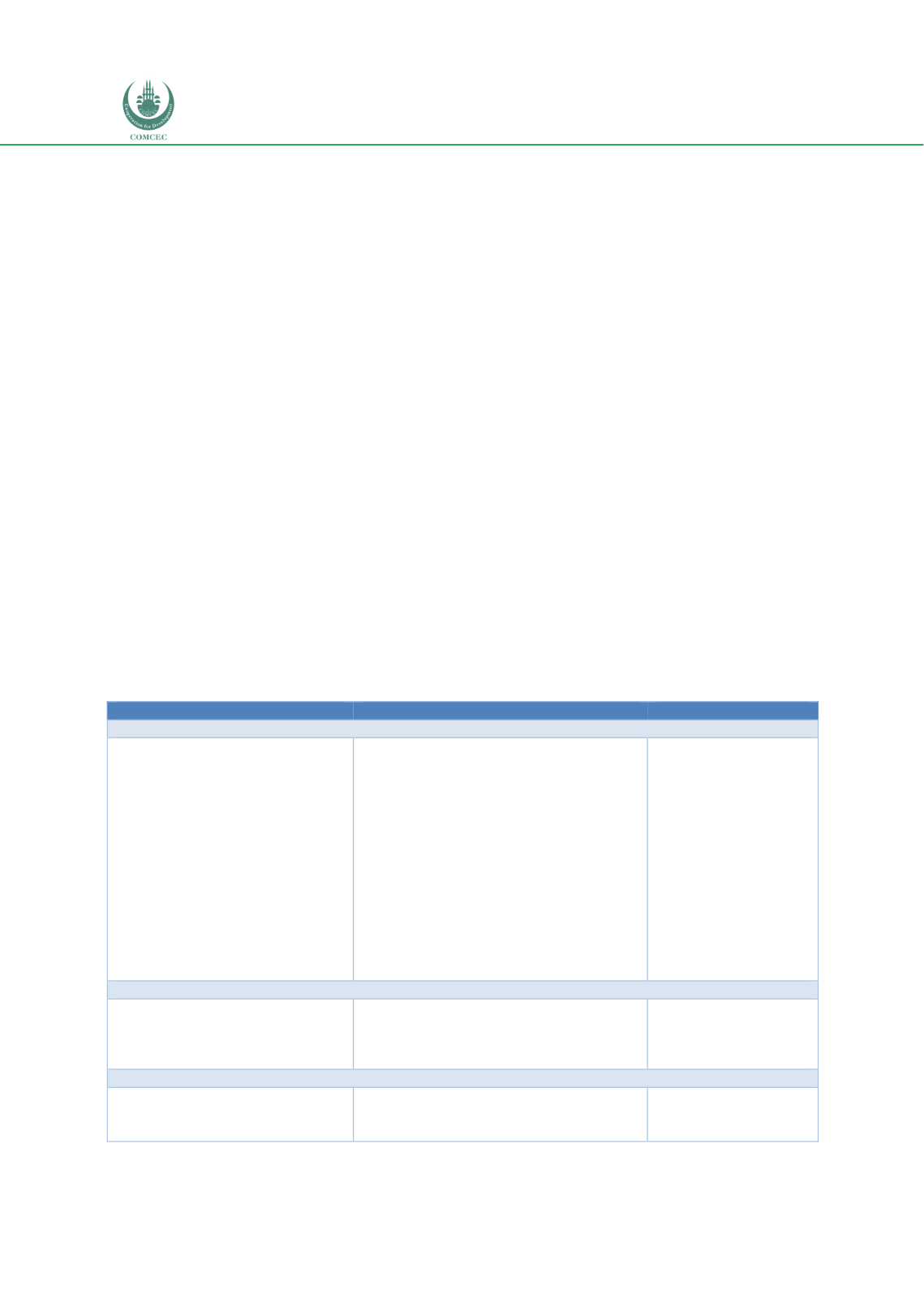

Infrastructure Financing through Islamic
Finance in the Islamic Countries
154
period and the continuous economic uncertainties. Sudan remains one of the potential
countries for infrastructure investment using different Islamic financing and investment
instruments if Sudan’s National Strategic Plan (2007 - 2032) succeeds in achieving economic
diversifications and economic stability. Despite the huge funds spent by the government on
infrastructure projects in the last decade, the infrastructure development needs in Sudan have
exceeded the capacity of the state budget and the domestic financial sectors’ capacities.
Although PPP is not codified or regulated, different PPP projects have been implemented
through GLCs, particularly during the early stage of the government privatization policy. For
example, Sudatel, which is considered as one of the best and most successful infrastructure
projects, was financed jointly by the government and private sector. Since the whole financial
system in Sudan is Shariah-compliant, the current legal and regulatory regime is supportive to
the Islamic finance industry. However, the contribution of Islamic banks in direct
infrastructure investments has been relatively small, with only 3.59% of the assets invested in
the sector. The financial institutions contribute to infrastructure development indirectly by
investing in sukuk and GICs issued by the government.
The SFSC plays an important role in enabling the issuance of different Islamic financial
securities. The government and infrastructure-related GLCs use the services of the SFSC to
issue various types of Shariah-compliant certificates. While the government uses the funds to
control liquidity at the macroeconomic level and to finance the annual budget, some securities
are linked to the development of the infrastructure sector.
The issues and recommendations to further enhance the role of the financial sector in
infrastructure development in Sudan are presented in Table 4.4.5 below.
Table 4.5. 5: Issues and Policy Recommendations: Sudan
Issues
Recommendations
Implemented by
Infrastructure Related Strategies and Policies
Sudan plans to increase the role of
the
private
sector
in
infrastructure development and is
improving
the
regulatory
environment for PPPs with
assistance from PPIAF.
Since infrastructure projects are
complex and long term, there is a
need to provide guarantees to
other project specific risks to
encourage
private
sector
participation in infrastructure
investments.
Develop Shariah-compliant contract
templates that can be used for different
types of infrastructure projects.
Provide guarantees and insurance to
mitigate risks in project financing.
Takaful and guarantees can cover some of
the project risks such as political risks,
and partial credit risks would encourage
Islamic financial institutions to invest in
the infrastructure sector.
Relevant government
bodies in coordination
with IDBG
Relevant public
bodies
Private sector takaful
companies
Legal and Regulatory Regimes
Islamic bank contribution to
infrastructure development can
be increased by
syndicated
financing.
Create a sound legal and contractual
framework for syndication to increase the
participation of Islamic banks in
infrastructure projects.
Relevant government
ministries
Islamic Financial Institutions
Restricted investment accounts
can be used for infrastructure
projects since the investors of
Increase the share of restricted
investments accounts in Islamic banks.
Banking regulators
Islamic banks
















